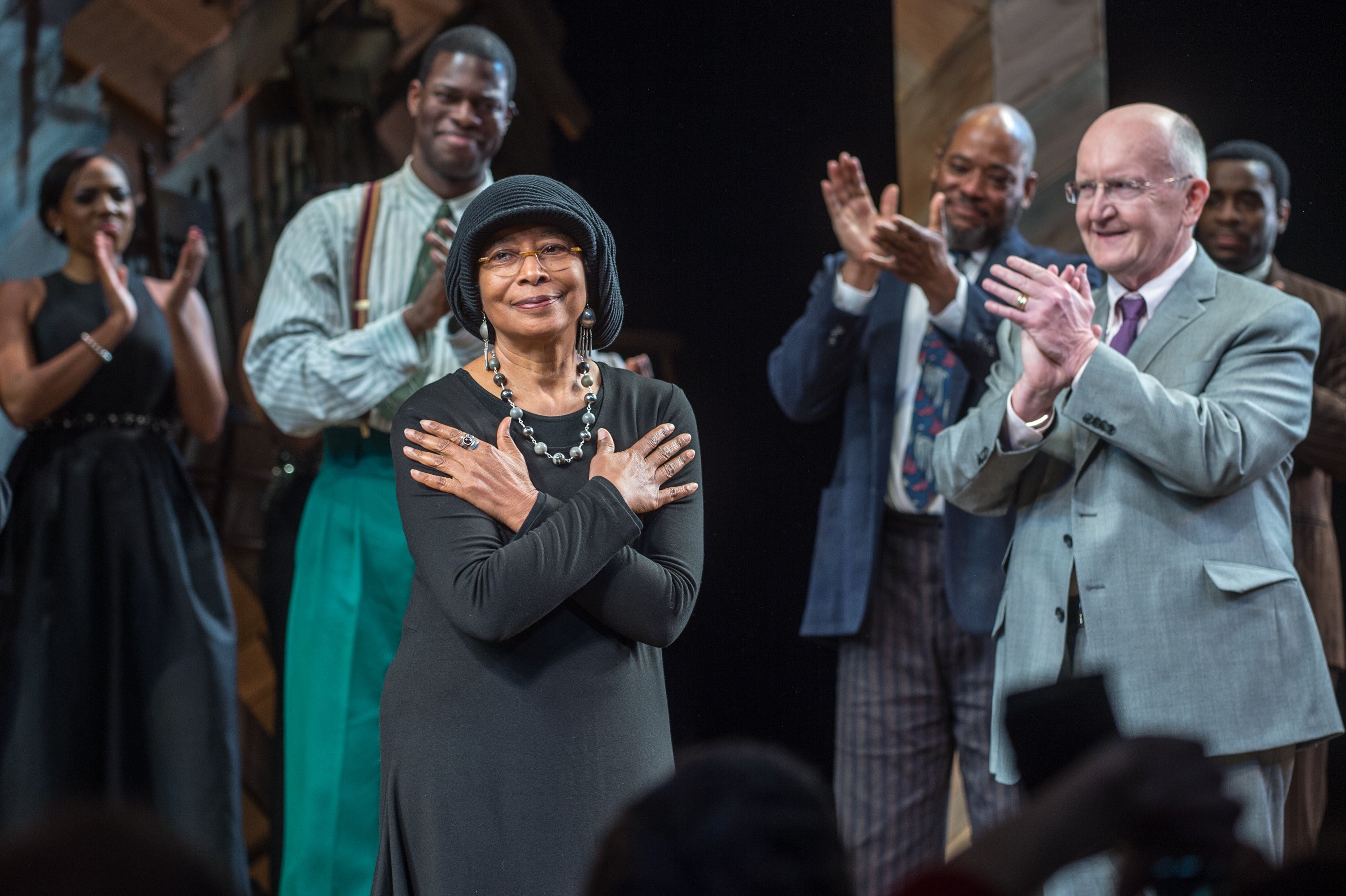Can an abuser atone for their sins? The Color Purple suggests so
#MeToo heralded a whole new movement of the representation of sexual assault on the screen but very rarely does it deal with atonement in the way The Color Purple does, writes Salamishah Tillet

Revenge is at the heart of the film Promising Young Woman – not only does it open with its main character Cassie (Carey Mulligan) targeting men who take advantage of inebriated women but we soon realise that she does so in service of a larger goal: avenging the rape, and eventual suicide, of her best friend Nina.
Even though she ultimately appears to get justice, this result is far from gratifying. Rather, it is a sobering reminder that because most rape victims will never see their assailants held accountable, revenge, or at least the fantasy of it, is all that is left.
The film is an example of how the #MeToo movement has influenced representations of sexual assault on the screen. Works such as Michaela Coel’s I May Destroy You on BBC One and Hannah Gadsby’s Netflix special Nanette centre the voices of rape survivors, while movies such as The Assistant and Promising Young Woman show the perspective of friends or female bystanders who also suffer as secondary victims of sexual assault. Unfortunately, even as they represent progress, these narratives also reflect a real-world legal system that repeatedly denies or delays justice to rape victim
As both a critic and as a feminist activist, I’ve spent the past two years working on the book In Search of The Color Purple: The Story of an American Masterpiece, about Alice Walker’s groundbreaking novel that prioritised the vantage point of a rape and domestic abuse survivor named Celie. Through the redemptive arc of its antagonist, Albert, The Color Purple, from 1982, paved the way for today’s debates about atonement, rehabilitation and forgiveness. It anticipates restorative justice outside the legal system, a remedy that is intended to heal victims as well as prevent the accused from reoffending by having them accept full responsibility for their actions, while also engaging in a consensual, reparative process with their victims.
When I began my research on The Color Purple, a story that I first read at 15, I knew that I would focus on Celie’s relationships with her sister, Nettie, her bawdy blues woman lover Shug and the defiant Sofia. Those are the black female characters that I have turned to as I struggled with my own sexual assault as a teenager in the 1990s, the ones I highlighted to my students as a young college professor in the early 2000s, the ones in which I find inspiration today.
But what I did not expect to find was how much my middle-aged self would be drawn to Albert, the figure Celie fearfully refers to as M (Mister) for most of her life. Celie is forced by Pa – who has raped and impregnated her and given away her two children – to marry Albert, a much older widower. When Celie joins Albert’s family, he continually beats her as she raises his children and tends to his house. It is only over time that we realise how broken he is, defeated both by Jim Crow and his domineering father, who prevented him from marrying his life’s love, Shug. In other words, while his rage is never justified, the novel seeks to understand its origins, giving it a powerful story line that was often initially overlooked by the novel’s biggest detractors.
After he removes his condom without her consent during sex, Zain is later able to earn her begrudging trust
Though The Color Purple earned Walker a National Book Award and the Pulitzer Prize for Fiction, the novel also generated much criticism, mostly from well-known black male writers and community activists who were offended by the depiction of abuse by Pa and Albert and by Celie healing from that violence in a romantic relationship with Shug. By the film’s release in 1985, Walker and the makers were ill-prepared to defend themselves against accusations that the movie reproduced vicious stereotypes about African American men. Such condemnations overlooked the healing made possible by Albert’s own desire to make amends.
After Celie discovers that Albert has been hiding Nettie’s letters from her for decades, she leaves with Shug, and curses Albert.
Soon, Albert’s life – his farm, his home, his family – fall apart, forcing him to make a critical decision: either crumble or find a way to reconcile with Celie. And so he rises to the occasion, and begins the long journey of repairing his relationships with his son and grandchildren, and in time, Celie and her children.
Albert’s arc, however, was far more abbreviated in the Oscar-nominated movie, in which he was indelibly played by Danny Glover. But even with his limited transformation on-screen, I see Albert anew when I watch it now.
Glover imbued his character with such charisma, dignity and depth that Albert is neither pure villain nor a blameless victim. Instead, he is a black man at a crossroads and thus has the opportunity to reimagine what paths of masculinity lie ahead.

But Walker’s vision of Albert was realised in the musical adaptation that premiered on Broadway in 2005 and even more fully in a revival in 2015 with Isaiah Johnson in the role. In that version, Albert’s breakdown is more total, making his turnaround all the more meaningful, and memorable.
John Doyle, director of the Tony-winning revival, says: “Albert gets his redemption and he does something. He does things for the children of the community and maybe that’s all a little through a pink gauze. But there’s something wonderful about that.”
These days as we, in universities, in Parliament, or at home, argue about how best to forgive or punish those who have harmed others, we often miss a crucial aspect of the debate that might help us move forward: how do we actually atone for violence they inflict on others?
Given pervasive racial bias in the criminal justice system, it makes sense that black women, like Walker, have imagined accountability outside court. Among recent #MeToo narratives, I May Destroy You, created by black British artist Coel, gestures to restorative justice through the relationship between Arabella (Coel) and fellow writer Zain (Karan Gill). After he removes his condom without her consent during sex, Zain is later able to earn her begrudging trust by helping her complete her book, which in turn leads to her journey of self-acceptance and rebirth.
But then Zain revives his own writing career under a pseudonym. Albert embarks on the much more arduous path of acknowledging his violence and all the harm that he caused.
And in the final moments of The Color Purple on stage, his hard work leads to him standing together with his family. He is not a hero – that status belongs to Celie, Shug and Sofia – but he still gives us a reason to hope.
Because most survivors of violence will never hear an apology or benefit from such restitution, Albert remains one of the more elusive and exceptional characters in American culture, a figure that can teach us all to take accountability for our actions, and to find redemption along the way.
© The New York Times
Join our commenting forum
Join thought-provoking conversations, follow other Independent readers and see their replies
Comments


Bookmark popover
Removed from bookmarks